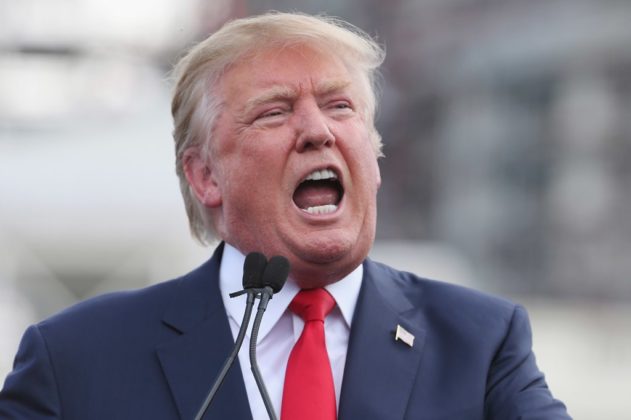Resisting is a marathon, not a sprint.
2017 is the year of anxiety. We’re at the beck and call of our phones’ push alerts, breaking bad news jolting us out of work, sleep and school. Just as one is extinguished (e.g., a Muslim ban defeated in court), another is crackling in the background, another hate crime, another ICE agent showing up at schools or hospitals, another mass shooting. We extol the virtues of unplugging, yet remain addicted to the news, convinced that staying informed is an act of resistance in itself. At least one psychologist is reconsidering our information dependency, and how we should be taking care of ourselves, one year into an unprecedented presidency.
“Watching the news is re-traumatizing,” says Michael Davidson, a Memphis, Tennessee-based therapist. “It’s like after 9/11, one of the things I told people was: Do not sit and watch the news constantly re-looping video of this. Yes, stay informed, care, but if you’re constantly watching it, you’re constantly re-traumatizing yourself.” Part of the problem is that the 2016 election was, for many Americans, “an assault on our personhood, not just an assault on what we believe in, not just an assault on things that we think legislatively need to happen.”
Davidson practices in what he calls “a very red state,” though, “I tend to see more progressives, more Democrats, liberals.” His clients are dealing with anxiety, depression, and sometimes PTSD and other trauma.
Among his patients, there’s been a steady chorus of, “Oh my god, see how horrible they are? See how horrible he is. See what horrible thing he did today.” That, he says, is exactly what we need to reduce. We need to go back to the basics, to affirm, “Here is who we are. Here are our values. Here are my values. Here are my ethics. Here is why I believe this issue is important. Here is why I am working on this issue. Here is why I’m engaged, involved, invested.”
He also thinks activism can be a form of self-care, a way to take back the power amid the daily avalanche of bad news. Once we’ve re-affirmed our values, Davidson suggests asking the following questions:
- What can I concretely do to push back?
- What can I concretely do to help those who are negatively impacted by what’s going on?
- What can I do in real ways to make a difference?
He also recommends starting small. While the advent of the Trump administration has created a groundswell of civic engagement, there are still many Americans who don’t know where they fit in. For them, Davidson recommends going local. It could be realizing that, “OK, wait, because of some of these decisions there are hungry people in my community so I’m going to go donate some food, donate some time, go cook meals or go serve meals for people in the community who are less food secure than they were before.” It could be, “I’m going to go join a protest and be physically seen as one more person being counted on the street in opposition to [bigotry].” It could be, as AlterNet has suggested many times, calling your representatives to demand they support or vote against a piece of legislation, or meeting with your local and state representatives to advocate for any number of causes.
For those who have been in the advocacy trenches much longer, Davidson has recommendations for how to avoid the dreaded burnout. First, we have to remember, “We’re looking at marathons rather than sprints,” and then go back to self-care basics: “sleep, exercise, eating, those things that seem kind of, yeah, yeah, yeah,” obvious; but the more burned out we get, the more those essential needs tend to fall by the wayside.
At the same time, Davidson stresses that it’s important that activists not get “hooked into the idea that somehow I have to magically figure out how to make it all better, change it all, because unfortunately that’s just not going to happen.” It’s about staying connected to a community of activists who can pick up the slack when one person needs a break, knowing that said person will cover for someone else when they do.
It’s OK to admit that going to protests, engaging in civil disobedience and advocating for a cause is indeed big and overwhelming, but Davidson reminds us, “makes the self-care things even more important.”
Mindfulness meditation helps him sustain his energy, even if, paradoxically, he “finds that the times I most need to sit down and do that are the times I least feel like doing that. I think it’s easy to get hooked or sidetracked into getting short little dopamine fixes. It’s like, ‘Oh, I’ll surf the net,’ or, ‘Oh, I’ll check my email again.’ All those things that are a short little hit but don’t feed more deeply.”
“It’s hard,” Davidson concludes. “It feels difficult. It feels overwhelming, but this is important.” We’re still here. One year in, that’s as good a place as any to start.

